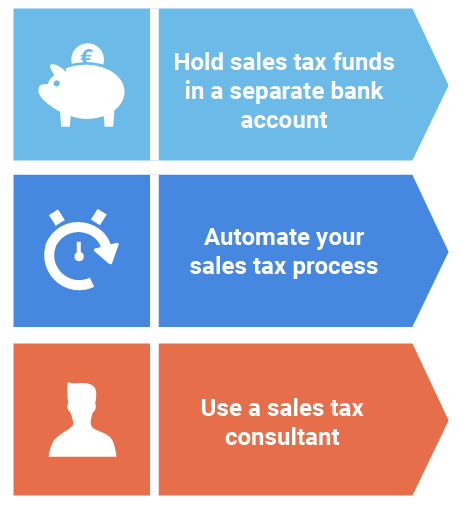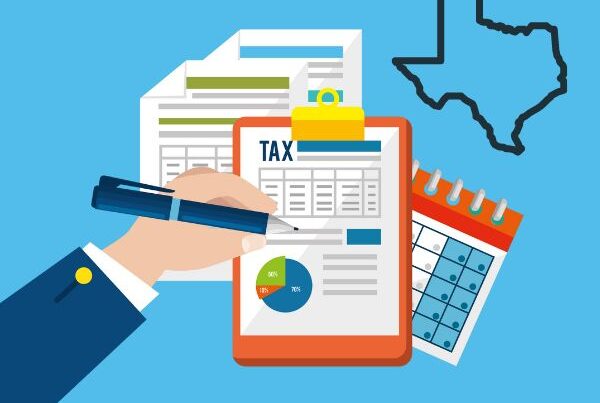We know…the last thing you want to be reading about right now is ecommerce sales tax compliance. But trust me – this post is well worth your time. Forget all the industry jargon and complex rules, we have 3 simple best practices that you NEED to implement:
- Hold sales tax funds in a separate bank account
- Automate your sales tax processes
- Use a sales tax consultant
1. Hold sales tax funds in a separate bank account
Some businesses go to pay sales tax but then realize they don’t have the necessary funds. This is the last situation you want to find yourself in, but it’s a reality. It’s especially common for small- to medium-sized businesses that aren’t required to pay sales tax on a monthly basis.
These businesses collect sales tax, see money sitting in their bank account, but forget about coming due dates for sales tax payments. They continue operating as if their working capital is higher than it really is. Then when that sales tax due date comes, they are in for a nasty surprise.
To avoid this pickle, we highly recommend transferring your collected sales tax funds to a separate bank account. This should be done on at least a monthly basis. Then you will have a true knowledge of your business’ working capital. Knowing your working capital will not only help you avoid the pickle already mentioned but also help you make more informed operational and strategic decisions. You can also sleep better at night, knowing that the necessary funds are set aside.
For more information, read How Many Bank Accounts Should a Business Have?
2. Automate your ecommerce sales tax process

To solve this problem, you need to automate your sales tax process. The easiest way to do this is with sales tax automation software. TaxJar and Taxify are two that we use for our clients and that we recommend for small- to medium-sized businesses. These companies can do the following:
- Connect to sales channels
- Automatically collect sales tax in states in which you are legally obligated
- Automatically file and pay sales tax to the necessary states
Wow, ‘nuff said. If you haven’t already, you should be signing up with one of these companies.
3. Use a sales tax consultant

So, what do you do if you haven’t been paying taxes? How do you know if you have been accurately paying in every state? Is your sales tax process covering all your bases? To answer these questions, you need the help of a sales tax expert. Hiring a sales tax consultant will be worth your time and money. If you need a starting point, we have a list of consultants who have great track records. Don’t hesitate to reach out.
Summary: 3 best practices for ecommerce sales tax compliance
Don’t let the failure to comply destroy the success of your business. Do the simple things:
- Hold sales tax funds in a separate bank account
- Automate your sales tax process
- Use a sales tax consultant
Then you can focus on growing your business without the worries of something as simple as sales tax getting in the way. Best of luck in your journey to ecommerce sales tax compliance and, more importantly, your journey to having a thriving business.








